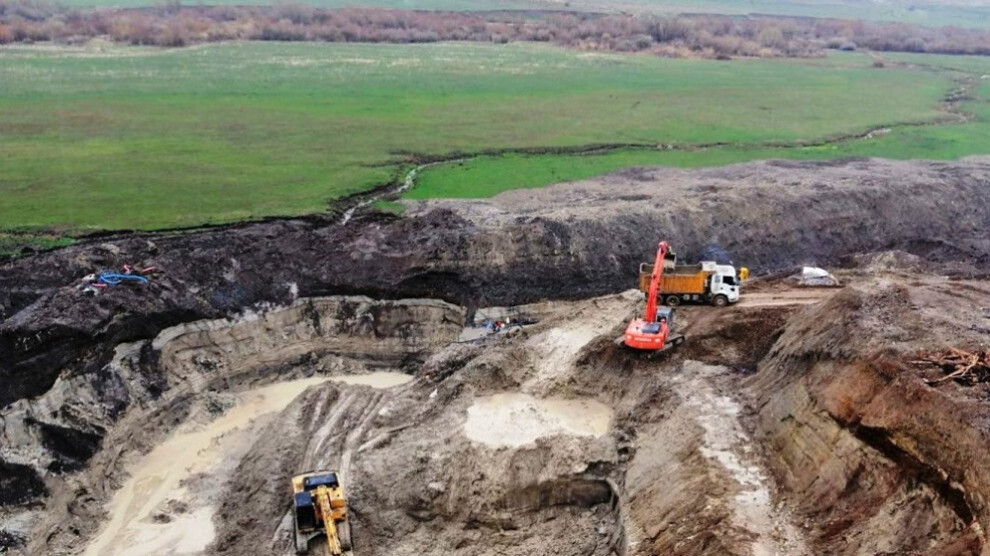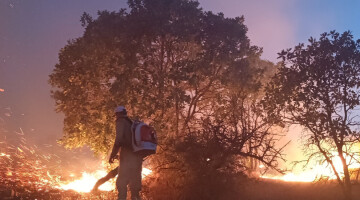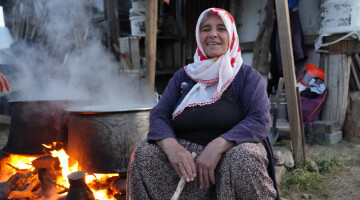The Environment, Historical Artifacts Protection Research and Development Association in Van (VAN ÇEVDER) made a statement in its office to mark the 92nd anniversary of the Zilan massacre that took place on July 13, 1930, in the Zilan Valley (Geliyê Zîlan) in the Erciş district of the Van province. The association’s head, Ali Kalçık, recalled that thousands of Kurds were massacred in the Zilan Valley.

Citing the headline of the Turkish daily Cumhuriyet on July 13, 1930, Kalçık noted that the massacre was hailed as a "heroic" act of the government. “The massacre was portrayed as a heroic act. Turkish soldiers were reported to bet over the gender of unborn children by piercing the bellies of pregnant women fleeing the massacre,” Kalcik said.
Kalçık remarked that projects that will pave the way for ecological destruction in the region have been implemented in order to erase the Zilan massacre from public memory. Noting that there are 4,300 plants and countless other endemic species in the valley, Kalçık pointed out that marble quarries and thermal power plants were established through Environmental Impact Assessment (EIA) reports which actually did not rely on any proper studies. “If the destruction of Zilan's nature is not prevented, this will cause the end of aquatic life and as well as the extinction of endemic plants. The Zilan Valley is currently being destroyed through new projects. The Zilan River, the biggest river flowing into Lake Van, has been destroyed by dam and HPP projects in recent years. Drilling work has begun to establish a gold mine in the valley in recent years and a marble quarry was launched which will destroy the ecosystem of the valley irreversibly. The valley where mass slaughters were executed with army weapons in the past, is currently facing ecological destruction,” he added.















